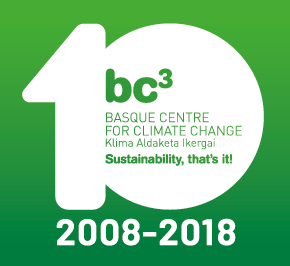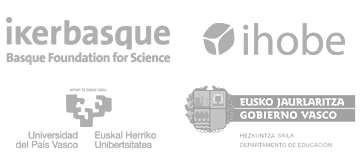 You are currently supervising a number of PhDs at BC3, is there a one-size-fits-all strategy?
You are currently supervising a number of PhDs at BC3, is there a one-size-fits-all strategy?
In my opinion, to successfully undertake a PhD, the candidate needs to prove capacity to do research on her/his own. This is not always easy and often implies a relatively solitary process. As a supervisor I try to accompany the candidate throughput the whole process but I cannot do the work for them. Instead, I try to adapt to the needs of the candidate and tailor the type of support I offer: some may need more tutoring, others more technical support or general guidance. I have not encountered two PhD candidates with similar needs – All very different!
In any case I also learn a lot working with enthusiastic PhD candidates! We are very lucky with the candidates we have at BC3!
Securing good researchers also means securing good funding. How do you handle this process?
Looking for funding is always a hard part of our work and requires a huge effort from our side. On top of this, a large number of proposals to which we devote a significant amount of effort are not funded in the end. It is not always easy to undertake research and at the same time work on proposals. There is an important trade off, which sometimes requires titanic effort.
Fortunately we have been very successful in connecting with leading research consortiums in Europe (and elsewhere). This has helped us a lot as we have been able to join very strong teams in preparing proposals, and of course, collaborating with strong research teams has also helped us to engage in very high quality research. The reputation of our former and actual Directors (Prof. Markandya and Prof. Sanz) has helped us a lot in this regard. We have also proven to our collaborators that we are excellent partners for research projects, as we work hard and have a very strong, highly qualified and very motivated team of researchers.
Part of this process must also involve networking and collaborating. How does this skillset help when translating climate change science into effective policy design?
Indeed, “translating” research findings into the language of policy makers is very challenging, but also having a good understanding of what the main questions are is crucial. And it is not always easy to know these. I would say that very close and intensive interaction with policy makers is required, often assuming part of the responsibility of how the information we provide to them is used. This is a cornerstone of good policy advice. Policy makers do not need to be told what to do, as they usually have a very good understanding of the area they are managing. What I believe they often need is good science based advice to support their policies, and access to state of the art methodologies and data to fine tune their instruments. Engaging with professionals that have been involved in policy making enhances a lot the understanding of their needs. Sometimes these kind of professionals are also part of our research teams.


